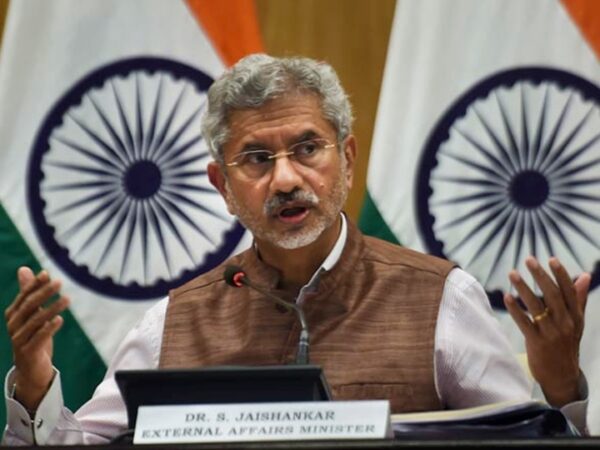Munich: India’s relationship with China is now experiencing a “very difficult phase” after Beijing violates the agreement not to bring military forces on the border, the Minister of External Affairs S Jaishankar said, emphasizing that “the condition of the border will determine the state of relations”.
Speaking at the panel discussion on Saturday at Munich Security Conference (MSc) 2022 in Munich, Mr. Jaishankar said that India had problems with China along the actual control line.
“For 45 years, there was peace, there was a stable border management, there were no military casualties on the border from 1975. It changed because we had an agreement with China not to bring military forces to the border (actual control lines or LAC)) and China violated The agreement, “said Minister in response to the question of Moderator Lynn Kuok.
“Now, the condition of the border will determine the state of relationship. It is natural. So clear, the relationship with China is currently through a very difficult phase,” he added.
The East Ladakh border deadlock between the Indian and Chinese military erupted after clashes of violence in the Lake Pangong area and both parties gradually increased their placement by rushing in tens of thousands of soldiers and severe weapons.
Tension increased after deadly clashes in Galwan Valley on June 15, 2020.
Mr. Jaishankar, who was in Melbourne last week, has said that the situation in the LAC has emerged because of the neglect of the written agreement by China in 2020 not for mass soldiers on the border and noting that Beijing’s actions have become a matter of “legitimate. Concerns” for the entire international community .
“When a large country ignores a written commitment, I think it’s a legitimate concern for all international communities,” he said in response to questions during a press conference along with his partner Marise Payne in Melbourne.
Mr. Jaishankar participated in a panel discussion on the Pacific Indo in MSC which was extensively intended to negotiate on increased tensions between NATO and Russian countries for Ukraine.
Panel Including Australian Foreign Minister Payne, Japanese Foreign Minister Yoshimasa Hayashi, Chair of the US Subcommittes Senate in Europe and Jeanne Shaheen Regional Security Cooperation and European Minister and Overseas Jean-Yves Le Drian.
When Lynn Kuok’s moderator asked how India contributed to European security and compare the Ukrainian crisis with the situation at the Indo-Pacific, Mr. Jaishankar said, “Well, I don’t think the situation in Indo Pacific and Transatlantic is truly analogous.” “Of course, the assumption inside Your question is somehow there is a trade-off and one country does this in the Pacific so as a reward you do something else, I don’t think it works international relations.
“We have a very different challenge, what happens here or what happens at the Indo-Pacific. Actually, if there is a connection with that logic, you will have a lot of European power that has taken a very sharp position in Indo. -Pacific. We did not see that. We haven’t seen it since 2009, “Jaishankar said, in the midst of aggressive Chinese flexing his muscles in the region.
China claims almost all the southern China is disputed, although Taiwan, the Philippines, Brunei, Malaysia and Vietnam are all claims. Beijing has built artificial islands and military installations in the South China Sea.
Beijing was also involved in maritime disputes with Japan on the East China Sea. The two areas are declared rich in minerals, oil and other natural resources and are also very important for global trade.
In connectivity, Mr. Jaishankar said it must be transparent and commercial-based. Should not create debt and it does not have to violate the territorial sovereignty and integrity of the countries, he added, in the middle of the international
In Quad, Mr. Jaishankar rejected the idea that the grouping of four members was NATO Asia as “a fully misleading term” and said “There are interested parties who advance such an analogy.” He described Quad as a grouping of “four countries that have a common interest, general values, a lot of comfort, which happened to be in four indo-Pacific angles.” “This is not the development of the 2020 post-2020 If they work together. And that’s basically what happened, “Jaisankar added.
